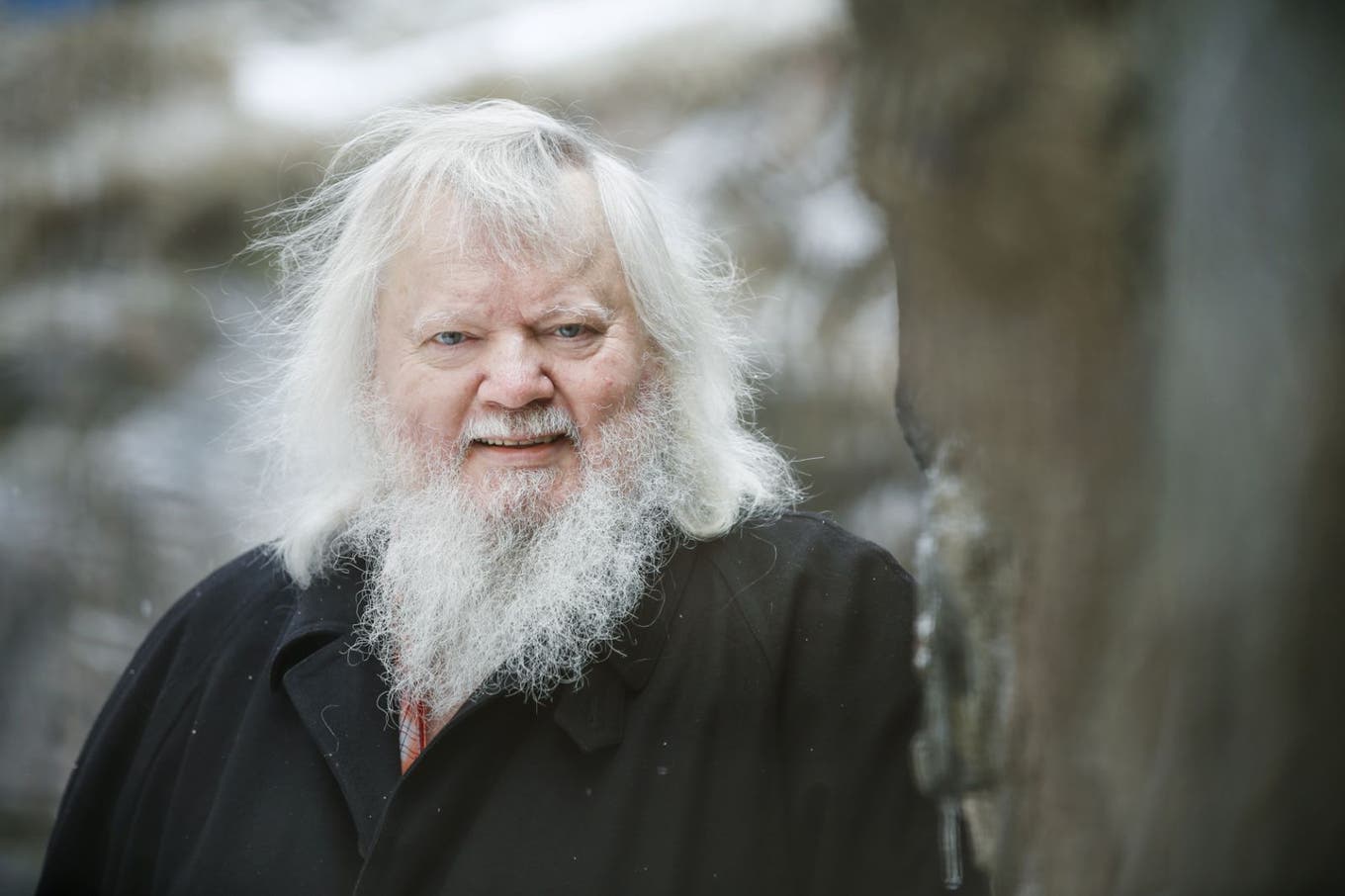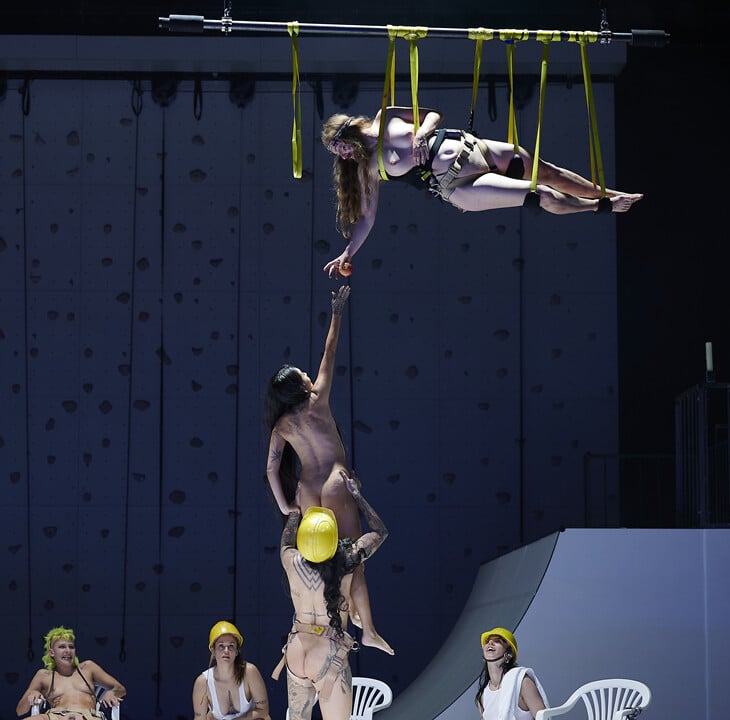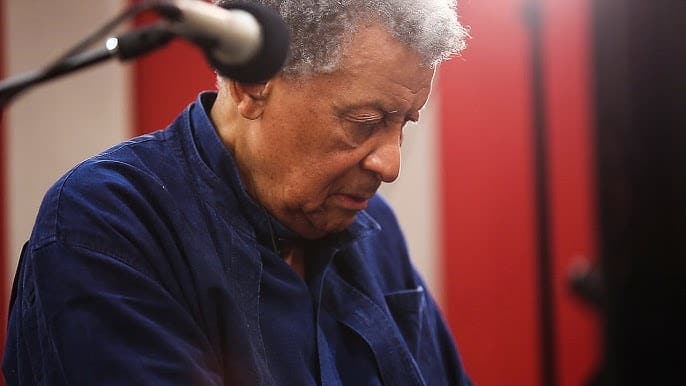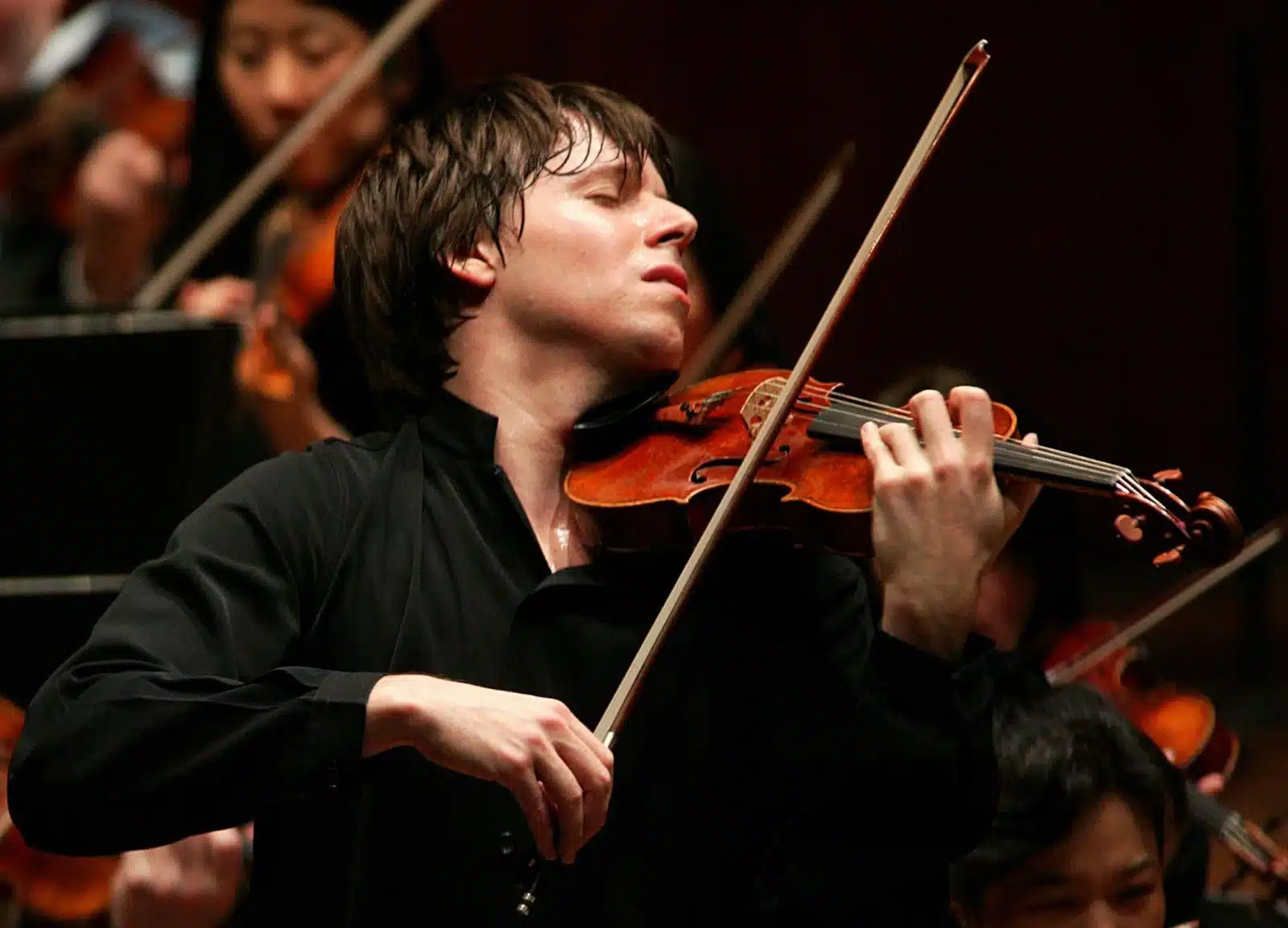Why do classical musicians submit to political correctness?
mainFrom the Lebrecht Album of the Week:
It feels dangerously transgressive, and thus all the more enjoyable, to listen to Scarlatti’s keyboard pieces on a full-throated Steinway D piano set up in an English country barn. Why musicians submit so readily to the tyranny of political correctness — composers to the imposition of serialism, performers to the doctrines of period practice — is a mystery to me. So to find a young pianist at the start of his path who is prepared to defy the professorial rule makers and play a Bach contemporary on a modern big banger of a concert grand is a joy that restores my faith in musical free-thinkers….
Read on here.

And here.





This begs for quoting: “Why musicians submit so readily to the tyranny of political correctness — composers to the imposition of serialism, performers to the doctrines of period practice — is a mystery to me.”
Well said.
Superb
It is the influence of academia, wrapping music in an intellectual cellophane which in itself is not music but can easily be grasped rationally and is therefore much more accessible to unmusical people. And then, since music is such an irrational thing, many musicians cling to intellectual elements to keep some grip onto the art form. That is also the explanation why musicians are often so incredibly conventional.
“The tyranny of serial composers”
Even in the 90s this was a straw-man argument
I certainly look forward to hearing this record. But will never depart with Maria Tipo’s first Scarlatti recording (for (or reissued by) Vox?) and, more recently, Sergei Babayan’s, both played on big old mean, nasty grands.
Babayan is a fine pianist, isn’t he? I’ve only come to know of him quite recently.
Or Evgeny Sudbin, whose first CD (in 2005) was of Scarlatti on a big old concert grand, and he followed this with more Scarlatti later on did he not? Artur Pizarro, Joanna MacGregor and Mihaela Ursuleasa in their time played and recorded Scarlatti on modern Steinways, to name but three more. And I think two keyboard finalists in this year’s BBC Young Musician played Scarlatti on a concert beast as well. All of which begs the question – what makes Colli such a rarity?
From an interview with the late Lorin Maazel re Baroque music:
>> No-one has a clue as to how the music really sounded and was played…to presume that we know how a piece of music was played by any given interpreter is nonsense.
I see no reason why playing out-of-tune makes the music more interesting. It’s such a scam, because you’ll see these old instruments looking very pretty and the musicians playing them looking extremely prophetic but they’re using modern strings, so you have already defeated the purpose of the whole exercise.
Np; there is plenty of musicological evidence about how ‘ancient’ music was played. The maestro was being defensive here.
. . . furthermore, it simply isn’t true that all string players in period instrument groups are using “modern strings”. Many of them do, indeed, use gut strings – perhaps a strong majority, even.
Gut strings were, in fact, standard issue for classical violinists up through the first third of the last century. Eve Heifetz used gut for the top three strings and metal over gut for the G string — just like violinists in Bach”s day.
Does anyone play a piano with gut strings?
With respect, there is no “transgression.” For today’s best musicians, the performance practice religious wars are long over. They know Bach is not Beethoven is not Brahms is not Berio, Scarlatti is not Stravinsky. They seek the most persuasive and perceptive way of playing each, using the best knowledge we have, which is formidable now. They know that even the most annoying non-vibrato zealots of the past had a point, perhaps their zealotry an understandable reaction to the total resistance of the establishment of the time. Horowitz’s justly legendary Scarlatti was as musically persuasive as the excellent recording you’re discussing, as are Angela Hewitt’s sparkling Scarlatti performances in her series for Hyperion – played on a superb Fazioli, on which she also records Bach, Beethoven and Liszt, each stylistically informed in its own way. Today’s “establishment” – say, the Berlin Philharmonic – plays Wagner like, well, the Berlin Philharmonic, but they play CPE Bach with the elastic, dancing, vibrato-less sound of the best period bands – which is now also the Berlin Philharmonic. Isn’t that fantastic? We’re entering a golden era of music making where our horizons are expanding exponentially. That’s cause for celebration.
Bravo. Couldn’t agree more!!
+1
True.
Added could be that the piano offers also the possibility to produce the crisp, light sound of the harpsichord, so is capable of sounding with the typical character of the older instrument but without its limitations: the piano can add the singing tone and melodic profile which surely was normal practice with string and wind instruments in the baroque period.
Well said! +1
Ivo Pogorelich plays D.Scarlatti best of everybody. Amazing craftmenship and insight.
Horowitz too!
affectations
It will be refreshing to see people giving less and less of a f**k, and maybe doing something worthwhile.
We have been handed down disastrous doctrines and orthodoxies, which are still at the hight of mainstream despite the towering evidence of their damaging effects.
Time to get rid of them.
Where is John Borstlap when you want him, eh?
Thankfully, nowhere to be found.
Here he is.
Every period has its own style and atmosphere, related to the rest of the culture. Research of the entire culture of older times offers insights about how people lived, what they thought and found important, their ‘taste’ (a notion which changed continuously), so that a picture emerges of how probably their music will have sounded. Since music addresses the emotional strata of the human being, under the surface of temporary style and mores there is some universal perception mode, and thus we can experience the expressive force of Monteverdi with its dissonances, Bach’s complex but living structures, Vivaldi’s minimal music, etc. etc. as the music was meant, and the more we know and understand of the nature of a past period, the better we can experience its musical universe.
In other words, under the surface there is a universal layer of perception and historical understanding can greatly enhance the experience. And occasionally we can represent its music even better than at the time, as the example of playing in correct style on the piano shows.
This is all perfectly fine – we’re all free to like what we like. But let’s not kid ourselves into believing that a Steinway D was a type of instrument that Scarlatti would have even imagined in his ear, much less write his sonatas for. I notice there’s no mention of the tuning system applied, so I assume it was tuned ‘equally’ for all keys.
It’s the same with the Mahler 10th for me. I like Mahler 10 as it exists today. But I would never, ever claim that it was a ‘finished’ work by Mahler.
I don’t think anyone *is* kidding themselves that this is what Scarlatti would have had in mind. Anyone with the most basic grasp of the history of keyboard instruments will know what the early pianos (fortepianos if you prefer) sounded like. Or at any rate will know that they didn’t sound like a modern piano. But does that matter? I’ve heard Robert Levin, no less, on the fortepiano. It’s interesting, but I can’t say that I enjoy the sound as much as I enjoy a Steinway or a Fazioli or even that rare creature the Steinway Fabbrini. And I also wonder whether, if Scarlatti could come back from the dead, he’d think that this new technology is all rather splendid.
Perhaps, but would Scarlatti have composed the same way? Would any of the old, great ‘masters’ have composed the same things, if they had been given Steinways; if they had been given large 19th Century pipe organs; if they had had access to the modern day symphony orchestra; brass with valves; pedal tuned timpani, today’s modern percussion ensembles; saxophones of various sizes and keys, etc.?
Ultimately, I can only speak for myself: I think the fandango sections in Scarlatti’s sonatas sound much better on the instruments they were written for. That’s just an opinion, not a fact. I would rather hear a Brandenburg played by Jordi Savall/Hesperion XXI than by Karajan/Berlin Phil. Others, though, are perfectly free to like the Karajan.
It is a fair point, and yet… We only have what they did compose and the question is whether we should try to make it sound as close to what they heard or not. In my opinion, we are robbing ourselves when we attempt to avoid all the enhancements that musical instruments have acquired during the last three centuries, because our ears are conditioned to hear the music differently by the fact that we hear “modern” instruments throughout our entire lives. So – yes, they would have composed differently; but by the same token we would have heard it differently too if we never heard the sounds produced by modern instruments.
It’s an interesting question, and one we’ll never be able to answer! Yes, composers were limited by the technical limitations of the instruments available to them at the time, but I also credit them with a degree of imagination as to what they ideally wanted their compositions to sound like. Bach didn’t have the organ of Saint-Eustache available to him, but perhaps if he could hear his music played on that magnificent instrument he’d say, “Oh yes, I would have loved to have heard it that way in Leipzig!”
There have been composers in times with extensive orchestral means who decided to write for reduced forces. Also, during the great sound amplification during the 19th century, Brahms continued to write for a classical type of orchestra, realizing that to be ‘grand’ the music does not need to sound ‘loud’. Schoenberg wrote his chamber symphony nr 1 for only 15 instruments after he got a bit disappointed (or tired) of the enormous orchestra of his earlier Gurrelieder. Stravinsky shrank his forces after the Sacre to a minimum, also because of the conditions of the 1st world war, but also for aesthetic reasons. The twenties saw a lot of music written for small orchestras or ensembles while orchestral means were available to perform Mahler’s ‘Symphony of a Thousand’. So, it is perfectly imaginable to think of Scarlatti writing for a steinway grand with only a very thin texture. After all, Shostakovich wrote his 24 preludes – with lean textures – for the modern piano. John Cage decided to do away with the piano entirely (4’33”). Etc. etc…..
I think the posting above by E.P. Biggs (E. Power Biggs?) is quite sensible. I give him a +1.
Academics invaded the performance realm of classical music under the guise of “authenticity,” despite their lack of knowledge about performance, interpretation and musical tradition. When their recordings started selling, the industry jumped on board, and virtually destroyed the performing traditions of baroque and classical music, now even 19th-century music. It is the worst thing that ever happened to classical music as an art. Only Gustav Leonhardt was the real thing among those people. They also destroyed the legacy of the incomparable (apart from Salzedo) Landowska (and many have tried to destroy Salzedo’s legacy as well). Genius creates jealousy and envy, as well as greed, which is why the lives of great musicians make great movies.
Harnoncourt.
Ohgimmeabreak
A: look up “the long march through the institutions.”
When I was a lot younger than I am now I was very taken with the idea of historically informed performance and period instruments. I really believed that the most important thing about a performance was how close it came to precisely reproducing the performance that would have been heard by the composer and his (or her) contemporaries. I was really quite fundamentalist about it. Women singing the upper parts in choral music? Metal strings? Concavely arched bows? Chin rests? Shoulder rests? Brass instruments with valves? A440 tuning? Vibrato? Large choruses and orchestras? All abominations!
And then at a certain point I began to realise two things: (1) there is nothing special about instruments being out of tune and brass players missing their notes; (2) the only thing that really matters is whether I enjoy the performance. It was very liberating to discover that I could listen to Karajan’s Brandenberg Concertos with the Berlin Philharmonic without worrying about whether it was exactly what Bach himself would have expected. Arguably, it was better than anything Bach could have imagined, because of the way the instruments have evolved.
I still won’t listen to a Messiah or a Passion with a huge chorus, but not because I’m appalled by the violation of any principle, but simply because I find those huge choruses a bit sluggish (and they are typically amateur and not as good as a professional early music choir). Women as sopranos instead of boy trebles, on the other hand, have been a revelation. I would now always listen to a mixed-sex adult choir in preference to an Anglican cathedral or Oxbridge choral foundation choir. I have been really impressed by the ensemble London Octave, which gives fantastic performances of baroque music on modern instruments.
While some HIP/period instrument performances can be really good, I’d no longer follow it like a religion, and I tend to think of it as a thing of intellectual interest with useful lessons to learn, but not as the definitive criterion by which a performance is to be judged.
Alex (if I may) – that is a superb and deeply impressive testament – thank you, and hear, hear.
You’re welcome! Rarely are my testaments described as superb or impressive, deeply or otherwise.
Why does it have to be an either/or? There is room for both. I myself happen to prefer baroque and early classical played according to HIP principles, but I have no problem with Scarlatti on a Steinway. To imply that HIP means out of tune instruments is quite ridiculous. There are extremely fine HIP ensembles that do not play out of tune. Let’s not start calling HIP lovers purveyors of political correctness.
Notwithstanding my comment above, I agree that the political correctness thing was silly. Unfortunately, I have to say that I have heard some very questionable tuning from the Orchestra of the Age of Enlightenment, not every time, but enough times to make me think of it as something of a risk. And I agree that there is room for both. If I see that Roger Norrington is conducting something I’ll go thinking, “Uh-oh, prepare yourself for a complete absence of vibrato!” I think that what some people like me object to is not people like you, who clearly take a perfectly reasonable view of these things, but people who are really dogmatic. I would hate to have to meet myself 20 years ago and get into an argument about this stuff. But I was young and those were the times to some extent. But I have acquaintances who are much older than I am who are still rigidly dogmatic, and it really does annoy me now. I met one of the said acquaintances at the LPO’s Christmas Oratorio with Vladimir Jurowski, and she just started talking about how they were the wrong instruments and that the performance wasn’t historically informed. I find it boring and pompous, but then people who are dogmatic (about anything) usually are.
Anything ideological or dogmatic is inherently hideous IMO.
Agreed.
And concerning string vibrato: what about the flutes and oboes? And what if at those times, people simply did not master a communal discrete vibrato and therefore avoided it? What about vibrato in voices? It seems obvious that one should accept improvement in certain areas; an orchestral string sound without any vibrato sounds bland, grey, unexpressive. That could not possibly have been the intention of Haydn, Mozart and Beethoven.
“Academics invaded the performance realm of classical music under the guise of “authenticity,” despite their lack of knowledge about performance, interpretation and musical tradition”
I’m not a big fan of early music, in general. But come on now, what proof would any of us have in terms of these people’s, “lack of knowledge”. Didn’t all this start from research into earlier performance practices to begin with?
Does anyone really think, for example, that Handel’s “Water Music” sounded better when many of the movements were taken slowly in a more 19th/20th century sort of way? Or that the horn parts sounded better when they were played on dark, ‘woofy’ sounding Conn 8D’s?
To my mind, recordings of ‘original’, early performance practices are like any other recordings: some are better than others. But I, for one, wouldn’t want to throw the baby out with the bath water.
Scarlatti being played on a modern grand piano is not news. Examples I can think of off the top of my head:
• Horowitz
• Perahia
• Pogorelich
• Hewitt
• Huangci (lovely recording btw)
• Pletnev
• Argerich (at least that one with all the repeated notes)
Lipatti
How could you forget Michelangeli?
How, indeed! For those who haven’t already heard it, here is the eerily perfect Sonata in B minor filmed in 1962. Haunting and utterly unforgettable in its subtle shading.
https://www.youtube.com/watch?v=3FiZc7kbrWw
So far I have not heard anyone play Scarlatti better than ABM did.
Oh/ was it really that composers ‘submitted’ to serialism – or was it that MUSIC CRITICS imposed that by ignoring those legions who continued to write in a non-serial manner, like Barber and Rorem, dismissing them as old-fashioned, while touting the likes of Elliot Carter for so many years. Without the decades-long efforts of Andrew Porter, Carter’s work would be lost in the same morass as so many other astringent academics of the day.
Elliot Carter has never composed a serial work.
That is true, but the example was chosen to address the broader issue, which was not at limited to strict serialism.. at the time referred to, anything at all consonant was suspect…
This site truly is like reading the 1971 NY review of books letters to the editor in blog form
1971 was no happy year. Richard Nixon ended the Bretton Woods system, and since them the value of money is a matter of faith. And Igor Stravinsky passed away, very sad.
Do you really think that one hundred years from now, Ned Rorem will be more remembered than Elliot Carter? I prefer Rorem on the whole, but I doubt if he’ll get mentioned more than Carter. Anyway, neither of us will know .
Rorem probably not – but Barber, yes. (Presuming that, culturally speaking, there IS a “hundred years from now” of course. At the moment all bets are off…)
I take a different view: the world always has been – and will always be – going to hell in a hand bag. It’s a perpetual thing. ‘Culture’ will somehow stumble along with everything else.
One hindred years from now? Rorem has a higher potential to be ‘rediscovered.’ Carter is more likely to be remembered as the American who composed after the age of 100. I think that he has two very special, really memorable works, both composed when he was just over 40, but that is a personal opinion. As for Barber, he will always be America’s ‘Albinoni.’ Of course, no of them is likely to be nearly as popular as Domenico Scarlatti at any time.
I’m sorry, but which “period practice doctrines”? From whom? Who has tried to stop anyone using “modern” instruments for baroque music? As far as I’m concerned, there’s always been baroque recordings with modern instruments: Glenn Gould, Peter Schreier, Andrei Gavrilow, Gulda, Richter, Murray Perahia, Maria Tipo anyone? Even anti-HIP’s nemesis, Nikolaus Harnoncourt, performed Bach passions with “modern” symphony orchestras already in the 1970s.
Again, what is this imaginary war between musicians that only seems to exist in the mind of critics or some stuck-in-the past, paranoid music lovers who are still stuck with their Jean-Francois Paillard’s recordings?
And since political correctness is to be fought against, then allow me to say that Lorin Maazels comments are utterly stupid and quite disappointing… Oh, and à propos Maazel, when was his last relevant recording? Just sayin’…
What the HIP movement achieved is to force musicians (and, indirectly, music-lovers) to adopt a position when performing music, especially pre 19th century compositions: what’s the best way to interpret it… What do you want to express with it… Talented musicians have always found a way to interpret this music “correctly”, whether with a historical harpsichord, or a modern Steinway and no one has ever complained about it. I, for myself, prefer Bach on a harpsichord, but I also like my Gould, my Gulda and my Perahia, without forgetting Richter…
And if you think musicians are being attacked today for playing Scarlatti or Bach on a modern piano, that’s still nothing to what the first generation of “baroquists” went through… And yet, they survived… And their legacy is there.
As for composers “forced” to compose serial music. I don’t get it… Who does that? Who feels forced to do that? Names please…
The discussion which keyboard instrument is the “correct” one is really very old; minimum 50 years. So who cares? Isn’t it strange that NL, who is above all in the PC business, writes about the “tyranny of political correctness”?…
For an arts blog I’m rather surprised by the amount of closed-minded philistinism on display, particularly in the comments. No one’s forcing anyone else to play or listen to Scarlatti on a harpsichord. Making it about “political correctness” is a pretty lazy way of complaining about other people’s taste.
Unbelievable that this conversation is really still a thing! And that so many readers still pile into it. Couldn’t we at least talk about the exaggerated importance of physical appearance?
I have studied Levine after the scandal broke and again and again he said, and others said about him, that even though settings . can be modernized in opera he wanted the music to be as close to the composers’ original conception as possible.
He actually collected letters of composers to gain more information as to their conception of the music.
At least for a long time he believed that modernizing the music and varying the composers’ scores was phony and should be avoided at all costs. In one relatively early interview he compared it to plastic finished furniture made to look like wood and discussed how he despised that.
What the bloggers are saying here leads me to believe that at one time it was fashionable to be musically as historically accurate as possible but apparently now is no longer so fashionable.
I wonder if this was one of the things, possibly the main thing, that caused Gelb and possibly others to believe that Levine is now too old– that is, artistically speaking, he just refused to change with the times.
The fad for early music has proved very divisive over the years, and has done untold damage. It was always an interesting curio, but should never have become anything more. A bit like the ideology driving Brexit, divorced from reality.
That’s a fairly ridiculous comparison. For one thing, the “reality” from which you claim that the early music movement is divorced reflects nothing more than your *taste* in interpretative approaches, not some God-given knowledge of The Right Way of Doing Things. There clearly is no such thing when it comes to art. This isn’t about “alternative facts” or even facts of any kind: it’s about musical choices which no one is forcing on anyone else.
HIP is not driven by ideology, but by information resulting from cultural research. It helps conductors understand the type of orchestra which must have been in the mind of composers at times when orchestras were not as large as around 1900, which helps them to create better clarity and balance. Baroque music was written for different instruments that our modern ones – not merely earlier versions of our instruments but really different ones like the gambas. So, knowledge helps personal interprettion of the music. Where people become dogmatic – on either side, artistic interpretation is threatened.
I’ll say it again — there’s nothing the least bit unusual about playing Scarlatti on the piano. Everyone does it, has for years, anyone still fiercely discussing the matter is a dinosaur. The interesting thing about this album is that the cute young pianist has not one but four pin-ups of himself on the cover! He recorded Scarlatti only because that’s what the record label Chandos wanted (as he admits on his slick website — you can watch a vid of him shaving there!). The problem is not political incorrectness; it’s the pure commerciality of the product.Technical excellence is now common as mud, the playing is perfectly ordinary; it’s hard to go wrong with Scarlatti, especially if sticking to the most popular ones. His Appassionata on YT is bangy and rote. He indulges in half-sounded wispy amateurish pianissimi. His repertoire is made of pieces that were tired 50 years ago. I hear not a trace of originality. Reading the over-the-top critical remarks about him on his website in conjunction wth the vast amount that Chandos has obviously invested in promotion, one comes to the conclusion that classical music journalism is utterly corrupt.